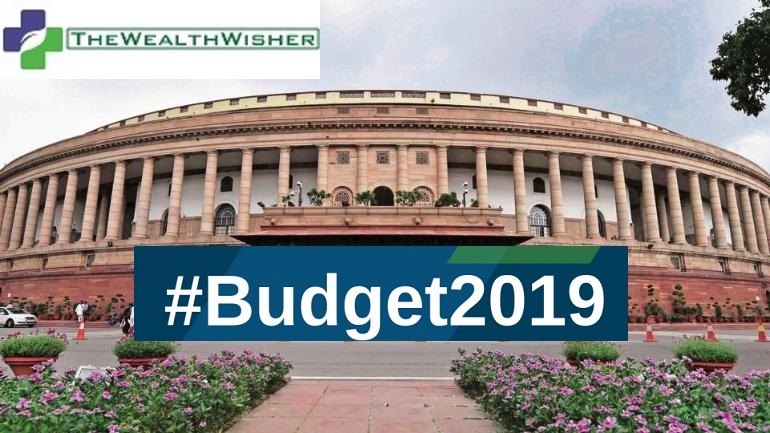This is one of the rare years when you have 2 Budget Speeches in one year. Because of general elections, the opportunity was availed by Finance Minister Nirmala Sitharaman to present the Union Budget 2019. Let’s check what this Budget Speech has to offer and its implications for an investor.
What a time we are in!
India looking at a 5 Trillion Dollar economy mark by 2024. To give you perspective, World GDP is around $70 Trillion. The USA is around 24 Trillion and on No 1 position. Currently, we are No 6th with 2.3 Trillion GDP. So quantum leap seems to be in sight, in all fields & direction.
 Hence the Budget 2019-20 or any budget speech now onwards is very important.
Hence the Budget 2019-20 or any budget speech now onwards is very important.
Major Announcements of Union Budget 2019-20

- No Changes in the Tax Brackets in Budget 2019-20. Income tax will not be applicable for persons having an income of less than Rs.5 lakhs per annum. Check details announced in Feb 2019. (Interim Budget 2019 By Piyush Goyal) (Download the Tax Slabs)
- Surcharge for individuals having taxable income from Rs 2 crores to Rs 5 crores increased to 18% from 15%
- Surcharge for individuals having taxable income from Rs 5 crores to Rs 10 crores increased to 22% from 15% – FY 2019-20. (My question – why will a person income above 10Cr will pay 42% tax? It is better to convert into a corporate and pay 25% or 30% tax as applicable)
- TDS of 2% on cash withdrawal exceeding ₹1 crore in a year from a bank account to promote less cash economy. (who withdraws that kind of amount?)
- The threshold for applicability of lower corporate tax rate of 25% increased from ₹250 crore to ₹400 crore.
- A new section under 80EE of the IT Act has been inserted to provide an impetus to affordable housing. An additional tax deduction of Rs 1.5 L has been provided on home loan interest. Following conditions need to be met to avail this benefit:
- Loan to be sanctioned between 1st April 2019 to 31st March 2020
- Value of the property (in the registry) should not exceed 45 Lakhs
- The taxpayer should not own any other residential property on the date of loan sanction.
- This tax benefit is applicable from 1st April 2020 (AY 2020-21)
- Additional Deduction of Rs 2.5L on purchase of an electric vehicle.
- Budget 2019-20 will make Petrol & Diesel costlier by Rs 1 due to the addition of Special Additional Excise duty and Road and Infrastructure Cess.
- Big Promises on Railways, Power, Water Transport, railway infrastructure Structural and tariff reforms in power, gas grids, water grids, national highways, and regional airports. Specifics awaited.
- “Har Ghar Jal” Scheme by 2024. Chennai & Bengaluru need WATER NOW!
- If you are an NRI with an Indian Passport, you don’t have to wait 180 days to apply for Aadhar. Immediately one can apply now.
- NPS become more attractive: Proposal to increase the exemption limit for final withdrawal from NPS from the current 40% to 60% of payment. It is proposed to allow a deduction for the employer’s contribution up to 14% of salary from the current 10 for central government employee. Also, Tier II NPS account of central government employee will fall under 80C. Also, in a wider interest of NPS subscribers, the government would segregate NPS trust from PFRDA.
- Aadhar & PAN to be one document with similar reach and benefits. (They are talking that one will be able to file returns with Aadhar alone. No Pan is required. Specifics awaited here.)
- Since the government claims to have your data, they will offer prefilled forms for ITRs from next year.
- Gold & Silver will be costly now as duty has been increased.
- The government will launch more ETFs (Like CPSE) and these will give benefit under Sec 80C. This is just like ELSS schemes offered by mutual funds, with the difference that these will be exchange-traded funds.
- Faceless tax scrutiny: means if you are under scrutiny, it will be done anonymously by taxmen, so that they cannot ask bribes.
- The government also proposes to increase public participation in companies by 35% from 25%. We expect lot of retail money coming into equity markets and many follow on public issues.
Is the Budget 2019-20 Good? Verdict Time!
Good & Bad for>>>










